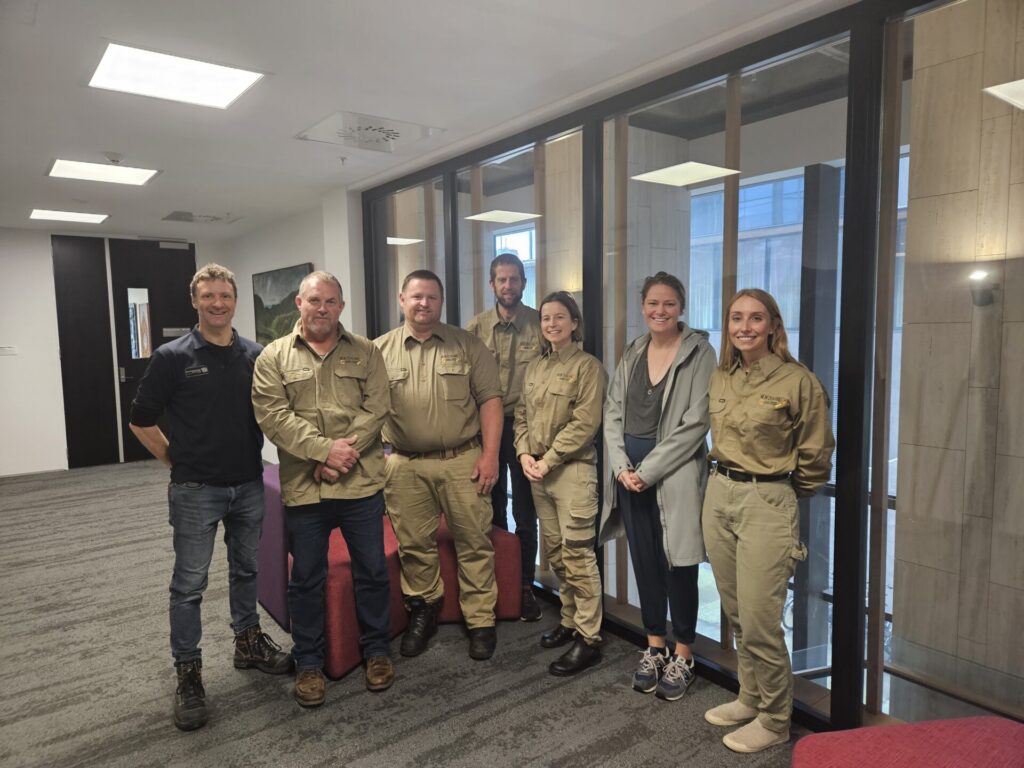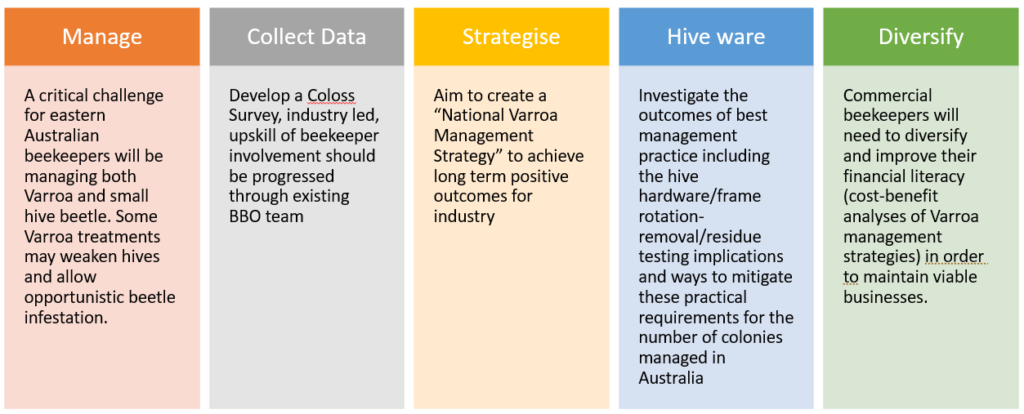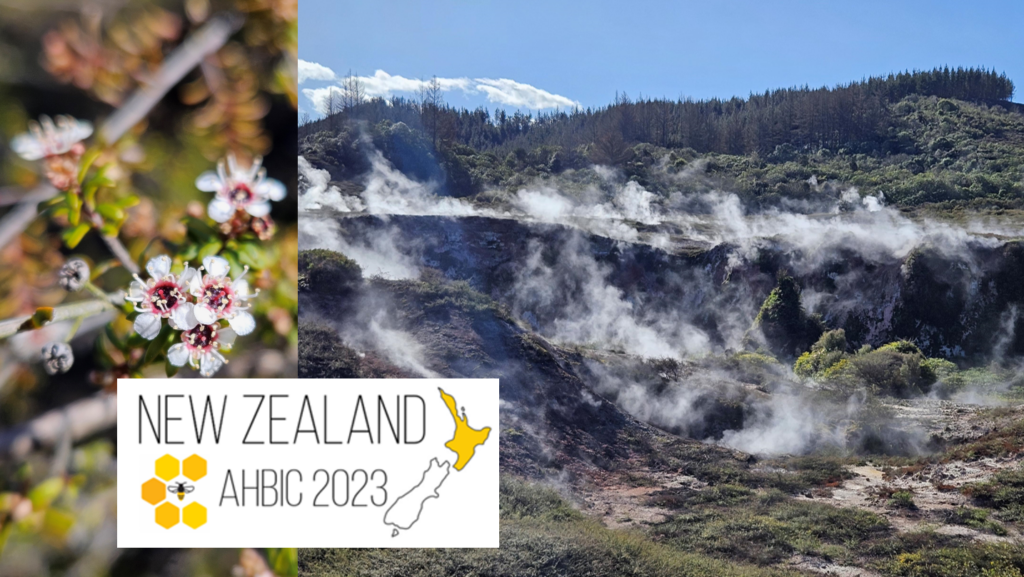AHBIC New Zealand Immersion Tour – Sponsored by AgriFutures
27 October 2023Bee Biosecurity Officers across Australia play a highly regarded and critically important role to honey bee industry. AHBIC believes their outreach through education and guidance to beekeepers will continue to […]

Bee Biosecurity Officers across Australia play a highly regarded and critically important role to honey bee industry.
AHBIC believes their outreach through education and guidance to beekeepers will continue to be in demand as the National Varroa Response has reached Transition to Management phase.
The aim of the New Zealand tour was to build knowledge and experience of our BBO’s and provide an opportunity to strengthen capacity in the Australian honey bee industry.

Image 1: Visit and meetings at Ministry for Primary Industries New Zealand head office, from left to right; Richard Hall PhD (Ministry for Primary Industries, New Zealand), Rod Bourke (NSW DPI Bee Biosecurity Officer), James Sheehan (DPIRD WA Project Officer – Bees), Adam Maxwell (AgVIC – Leading Biosecurity Officer Apiary), Bianca Giggins (AHBIC Varroa Coordinator), Hayley Pragert (Ministry for Primary Industries, New Zealand) and Dr Jessica Bikaun (DPIRD WA Project Officer Bees).
Attendees
Our travel team included apiary biosecurity experts:
- Rod Bourke (Bee Biosecurity Officer, New South Wales Department of Primary Industries)
- James Sheehan(Project Officer – Bees Department of Primary Industries and Regional Development)
- Adam Maxwell (Leading Biosecurity Officer Apiary at the Victorian Department of Energy, Environment and Climate Action)
- Dr Jessica Bikaun (Project Officer – Bees Plant Biosecurity Department of Primary Industries and Regional Development)
Tour Objectives
- Observe and discuss beekeeping practices with biosecurity authorities and apiary industry leaders
- Workshop practical field based recognition and detection of Varroa destructor amongst staff using techniques routinely used as well as novel/emerging capabilities by beekeepers
- Observation and work experience with experienced commercial and recreational beekeepers to discuss their long-term experiences managing Varroa
- Examine communication strategies and learnings from the Transition to Management phase of Varroa establishment in New Zealand, and avenues currently used for promoting best practice Varroa management
Tour Details
Over the course of eight day tour our cohort of BBOs spoke with government agencies, key industry representatives and beekeepers with a variety of production scales. We were able to visit hives around Wellington, Lake Taupo, Palmerston North, Taihape, Hamiton and Auckland and were delighted to learn that growers not only continued production after their initial outbreak 20 years ago, but there have been many newcomers to the industry since. We were really surprised at the different behaviours of beekeepers, in terms of variety of production techniques and honey markets. New Zealand Apiarists we visited are equally varied in their treatment of Varroa and the methodology behind why they chose a certain treatment at a certain time.
Situation
- In the beginning, beekeepers we met with gained immensely from workshops, training days and engagement with their Apiary staff
- Apiary staff and beekeepers forged strong relationships and ongoing education and support was achieved for some years post transition
- Beekeepers are acutely affected by the ongoing costs of management and chemical treatment to control Varroa in their colonies
- Chemical treatments we saw utilised were, oxalic acid fogging, apivar strips, Bayvarol strips, Thymol pads, formic acid
- Systematic monitoring before treatment and after treatment was being done at varying rates and mostly by corflute trays with oil placed inside the bottom of boxes, not so much by alcohol washing, thought to be a due to the duration Varroa has been in New Zealand (20years).
What’s different about New Zealand

What we learnt about treatments
- Monitoring is a critical learning piece which becomes the main tool to empower decision making
- Product efficacy is always IMPORTANT
- Lower percentage of efficacy means repeating the treatment at a faster rate to the colony by the beekeeper = increased cost
- Treatments varied between apiary and beekeeper so were often determined by cost, monitoring result, time of year and time available, residue risk management
Australian Considerations after the Immersion Tour



![]()
You can read and listen to more about the AgriFutures Capacity Building opportunity by visiting the article Learning how to live with Varroa | AgriFutures Australia and listening to Bianca’s AgriFutures OnAir Podcast episode AgriFutures On Air: Learning from our neighbours: how NZ lives with varroa on Apple Podcasts



